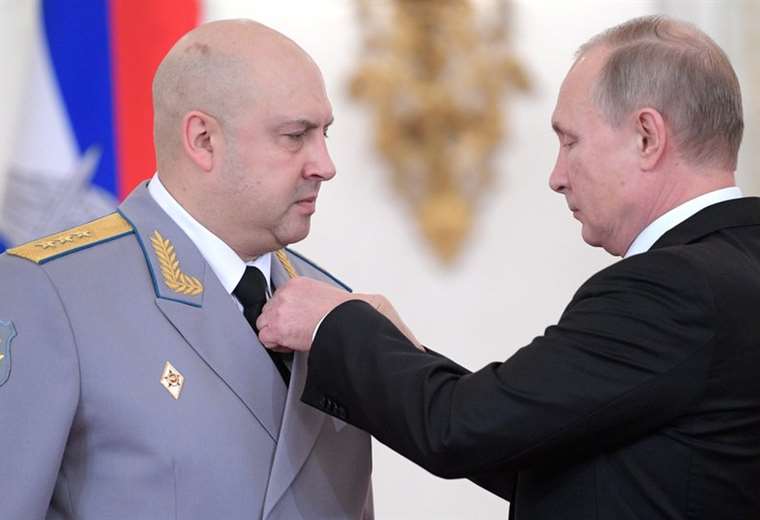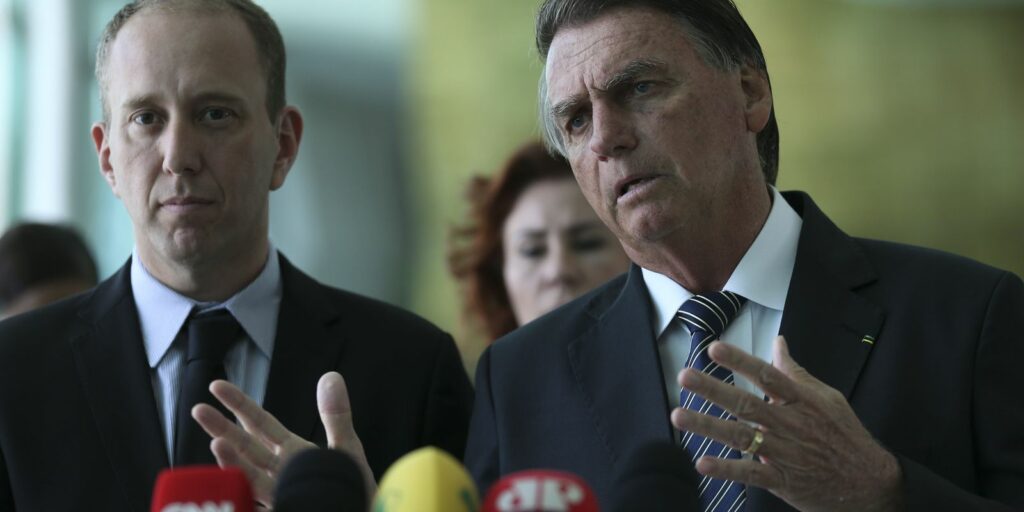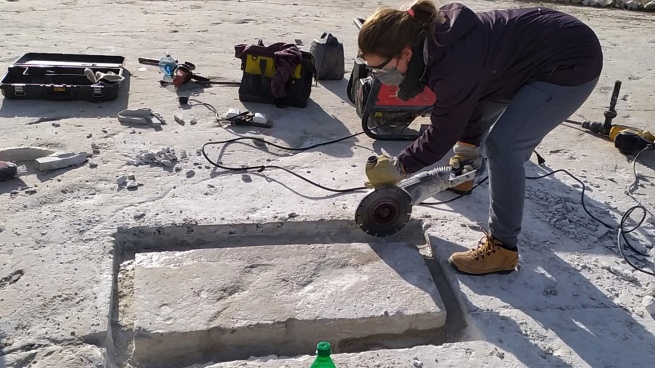October 10, 2022, 10:50 PM
October 10, 2022, 10:50 PM
Russian President Vladimir Putin put one of his most prominent men at the forefront of the war in Ukraine this weekend.
Sergei Surovikina general of the Russian army, was appointed on Saturday “commander of the Joint Group of Troops in the area of special military operation”, as the Kremlin calls the invasion of his neighboring country.
With this decision, Moscow gave a message within its war strategy hours after the partial collapse of the Crimean bridge occurred in the early hours of Saturday by the explosion of a truck that caused the fire of seven fuel tanks.
Ukraine took no responsibility for the incident.
Two days later, this Monday, Russia attacked Kyiv with missiles after months without approaching the Ukrainian capital.
Putin called it the response to an “act of terrorism” who blamed the government for Volodymyr Zelensky.
But it was also Putin’s response to the hawks in his own camp, who are growing restless with Russian losses in the war and growing louder with their calls for tougher action, according to Sarah Rainsford, a correspondent for the BBC in Eastern Europe.
Kremlin officials and TV presenters who were depressed and despondent just a few days ago now applaud this attack on their neighbor, gloat and even dance in social media posts, while Ukraine mourns its dead and stirs among the debris from multiple attacks.
An experienced general
Surovikin is originally from Siberia, he is 56 years old and has an ascending military career: he fought in Afghanistan, Chechnya, Tajikistan and Syria. He carries with him a reputation for cruelty and brutalityalthough the Russian version is that it is a “tough and demanding military leader”.
In Chechnya, his public promise to “destroy three militants for every dead soldier” gained wide resonance, according to the Russian news agency TASS.
Before being appointed army general in August 2021, Surovikin fought in the war in Syria.
There he led the group of Russian troops in that country since March 2017 and, according to TASS, took control of most of the territory, the main transport links and oil fields, among others.
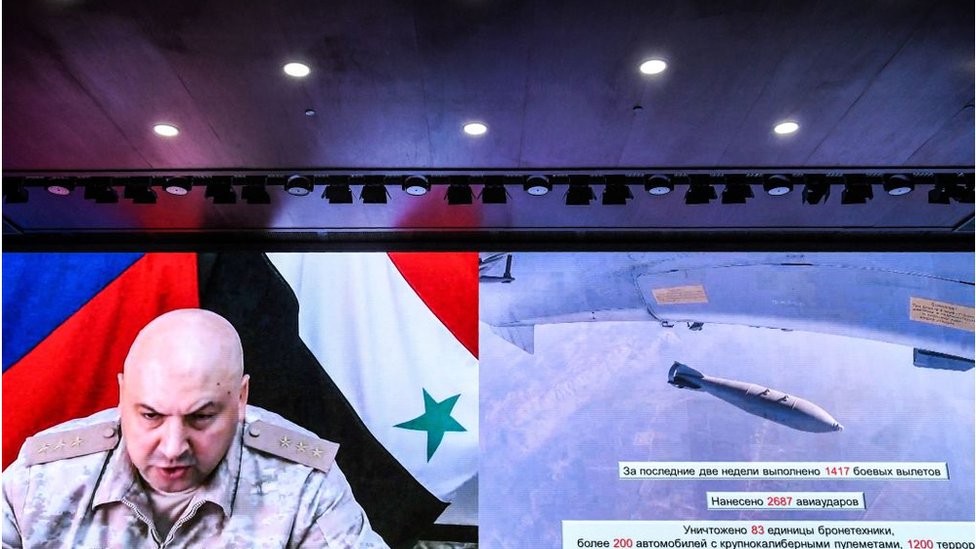
In November 2017 he was appointed Commander-in-Chief of the Russian Aerospace Forces and thus responsible for the aerial destruction of much of the Syrian city of Aleppo.
And a month later he was decorated by Putin: he received the title of Hero of the Russian Federation “for courage and heroism shown in the performance of military duty in the Syrian Arab Republic.”
The general’s resume also includes the death of pro-democracy protesters in Moscow in 1991 during the coup attempt, for which he was already described as ruthless.
The military man was arrested at the time, but then Russian President Boris Yeltsin ordered his release, according to TASS.
Surovikin had already been leading the “South” group of troops in Ukraine from this year and, according to Frank Gardner, the BBC’s Security Correspondent, it is unclear what difference his appointment will make.
In Ukraine, Russia is facing a real army, equipped and trained by NATO countries, and the Russians have been losing ground and prestige.
The Kremlin has lost several generals killed at the front and others have been fired for incompetence.
And hardliners in Moscow have been clamoring for a more aggressive approach to achieve their goal of subjugating Ukraine.
The Crimean bridge incident brought Russian dismay at the progress of the war to a peak.
Appointing Surovikin to command the troops in Ukraine was “Putin’s concession to hardliners,” says Rainsford.
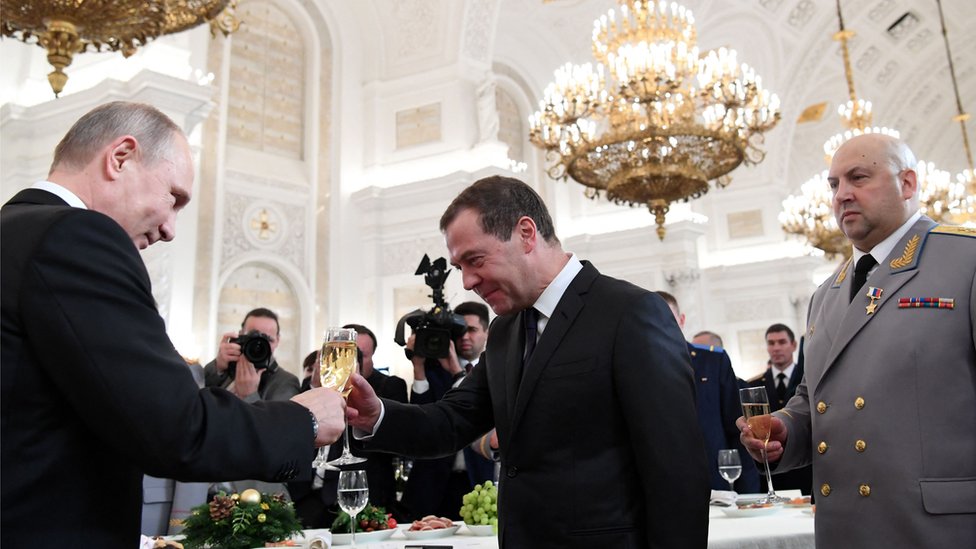
They have long called for attacks on civilian infrastructure: freeze the Ukrainian people into submission this winter, if their soldiers cannot be defeated on the battlefield.
“When will we start fighting?” demanded propagandist Vladimir Solovyov, arguing that it was better for Russia to be feared than to be mocked.
Grigory Yudin of the Moscow School of Economic and Social Sciences described Monday’s massive bombardment as “an act of desperation”aimed primarily at solving Putin’s internal problems.
The Russian president appears to have embraced the hawkish idea that you have to “scare the opponent to death” into giving up, Yudin wrote on Twitter.
Former Russian President Dmitry Medvedev, once seen as a liberal, has warned that these attacks are only “the first episode”, with more to come.
“It is clear that his forces are currently too spread out on too many fronts. If Surovikin plans a radical rethink, he may decide to concentrate on a single area and apply overwhelming, overwhelming force,” Gardner analyzes.
Remember that you can receive notifications from BBC World. Download the new version of our app and activate it so you don’t miss out on our best content.
